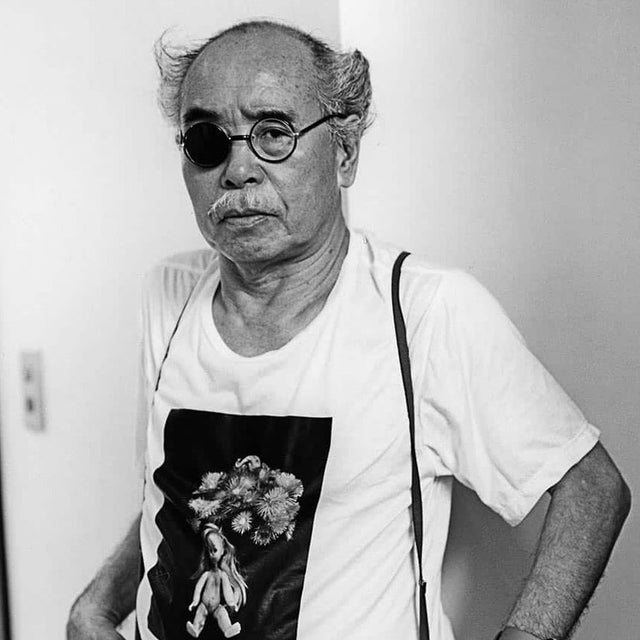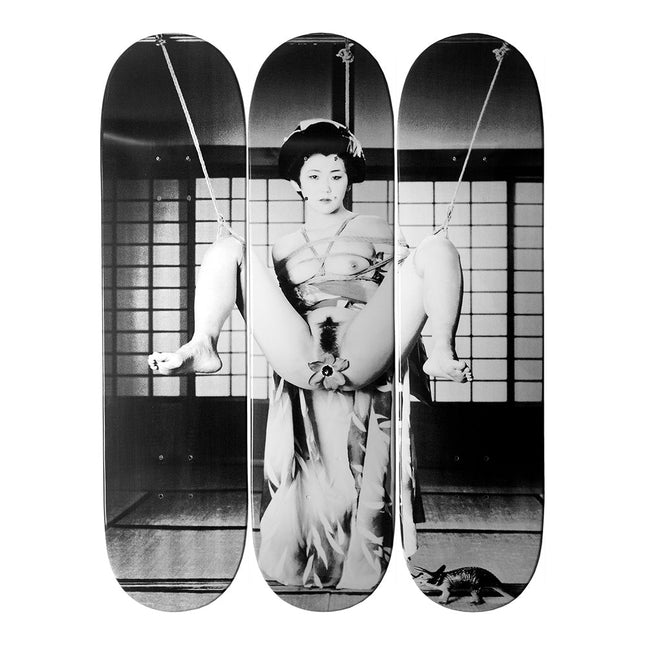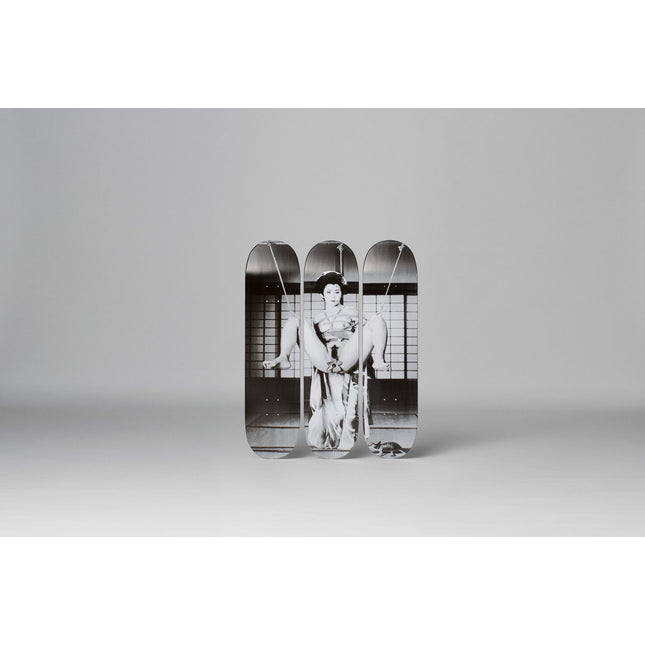Nobuyoshi Araki is a renowned Japanese photographer, known for his provocative and controversial work that explores themes of sexuality, life, and death. Born on May 25, 1940 in Tokyo, Japan, Araki studied photography at Chiba University before starting his career as a commercial photographer. His early work was heavily influenced by the master photographer Daido Moriyama, who was known for his raw and gritty street photography.
In the 1970s, Araki gained international recognition for his series of photographs titled Sentimental Journey, which documented his honeymoon with his wife Yoko in a deeply personal and intimate way. The photographs captured the couple's joy and tenderness, as well as their struggles and arguments, in a way that was both honest and romantic. The series was a departure from the traditional family album, and marked the beginning of Araki's exploration of the relationship between love and death.
Throughout the 1980s and 1990s, Araki continued to push boundaries with his photography, often using erotic imagery to challenge societal norms and expectations. His work was both celebrated and controversial, and he was frequently criticized for his use of explicit sexual content. In 1990, he released a book titled Tokyo Lucky Hole, which documented the underground sex industry in Tokyo. The book was banned in several countries and caused a great deal of controversy.
Despite the controversy surrounding his work, Araki's talent and artistic vision continued to be recognized. He was awarded the prestigious Higashikawa Award in 1985, and was later named a Honorary Fellow of the Royal Photographic Society in 2004. His work has been exhibited in galleries and museums around the world, including the San Francisco Museum of Modern Art, the Tate Modern in London, and the Museum of Contemporary Art in Tokyo.
In 1991, tragedy struck when Araki's wife Yoko died of ovarian cancer. Her death had a profound impact on Araki's work, and he began to explore themes of life and death in a more personal way. He also began to use a more raw and spontaneous style of photography, capturing moments and emotions as they unfolded.
In 2005, Araki was diagnosed with prostate cancer, and underwent surgery to remove his prostate. His experience with cancer had a profound impact on his work, and he began to explore themes of mortality and the fragility of life in a more personal and introspective way. He also began to experiment with new techniques and mediums, such as painting and sculpture.
Despite his health struggles, Araki has continued to create provocative and boundary-pushing work. He has published over 450 books, and his work continues to be exhibited in galleries and museums around the world. He is considered one of Japan's most important and influential photographers, and his legacy will continue to inspire and challenge future generations of artists.


